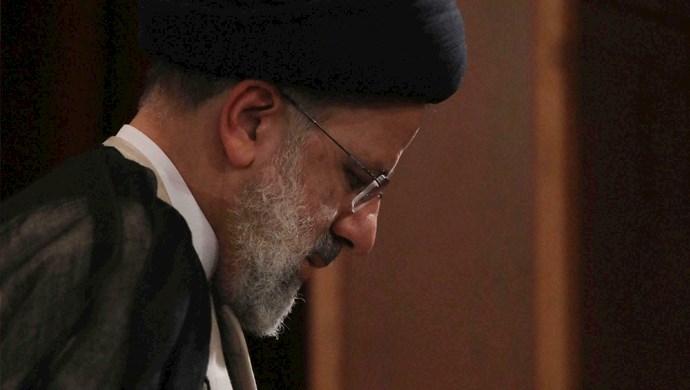Analysis by PMOI/MEK
Iran, October 12, 2021—Iranian regime president Ebrahim Raisi will not be traveling to Scotland to attend an upcoming climate change conference hosted by the United Nations, the spokesperson of the foreign ministry announced on Monday.
The 26th United Nations Climate Change Conference of the Parties (COP26) will be held in Glasgow from November 1 to November 12.
But during Monday’s foreign ministry press conference, spokesman Saeed Khatibzadeh said, “The president will not be attending the climate change conference in Scotland.”
Khatibzadeh also said that Iran is not a member of the Paris Climate Accord and that there were never any plans for Raisi to travel to Scotland.
Ironically, in June, the regime’s own media had widely publicized that Raisi had been invited to take part in the conference, giving the impression that he would definitely be taking part.
Regardless of Iran’s membership status, attending the climate change conference would be a great opportunity for Raisi to pose for photo ops with dozens of presidents, prime ministers, and top officials from other countries. This would be especially important for Raisi, who has very little history in diplomacy and needs to build up his profile as the regime’s new president. The regime’s state-controlled press were even floating suggestions of Raisi directly meeting with several world leaders during the trip.
So, why the sudden about-face?
The truth that Khatibzadeh did not acknowledge in his remarks are the efforts spearheaded by the Iranian resistance to hold Raisi to account for his crimes against humanity.
In the past weeks, Iranian exiles have been holding protest rallies across the world, exposing Raisi’s history of human rights violations. Raisi was one of the key officials involved in the execution of more than 30,000 political prisoners in the summer of 1988. Raisi was a member of the “death commission,” a group of “judges” who summoned political prisoners and immediately sent them to the gallows if they didn’t renounce their support for the People’s Mojahedin Organization of Iran (PMOI/MEK).
Jurists and legal experts argue that the 1988 massacre is an instance of genocide and crime against humanity and its perpetrators, including Raisi, should be tried in an international criminal court.
Human rights organizations and UN rapporteurs have called for an impartial investigation into the 1988 massacre. And former political prisoners and families of the victims of the 1988 massacre have testified in court about the role of Raisi and other regime officials in the brutal torture and execution of dissidents in Iran’s prisons. The Iranian Resistance has provided numerous documents to that prove beyond the shadow of a doubt that Raisi was involved in crimes against humanity.
Making things more complicated for Raisi is a formal complaint filed to Scottish authorities, calling for the arrest of Raisi if he sets foot on the country’s soil. The plaintiffs include witnesses of the 1988 massacre, families of victims, former MEP from Scotland Struan Stevenson, and renowned jurist and human rights activist Tahar Boumedra.
Amnesty International’s program director for Scotland has also called for Raisi to be investigated for his alleged involvement in crimes under international law.
All of this have put a heavy burden on the newly sworn president of the regime, who now finds himself entangled by his own crimes. In September, Raisi cancelled his trip to New York for the annual UN General Assembly. While the regime did not provide an official explanation, state-run media speculated that the regime was afraid that if Raisi would make the trip, “Iranians living abroad or some organizations and institutions might want to take actions against him.”
Regime supreme leader Ali Khamenei facilitated Raisi’s rise to presidency because he wanted to consolidate power at a time that his regime is facing widespread unrests across the country. With his track record of suppressing dissent, Raisi was the best person to maintain hold on power at this critical juncture. However, Raisi’s appointment has come at a heavy price for the regime, and his bloody past—which symbolizes four decades of the mullahs’ rule—follows him wherever he goes.





